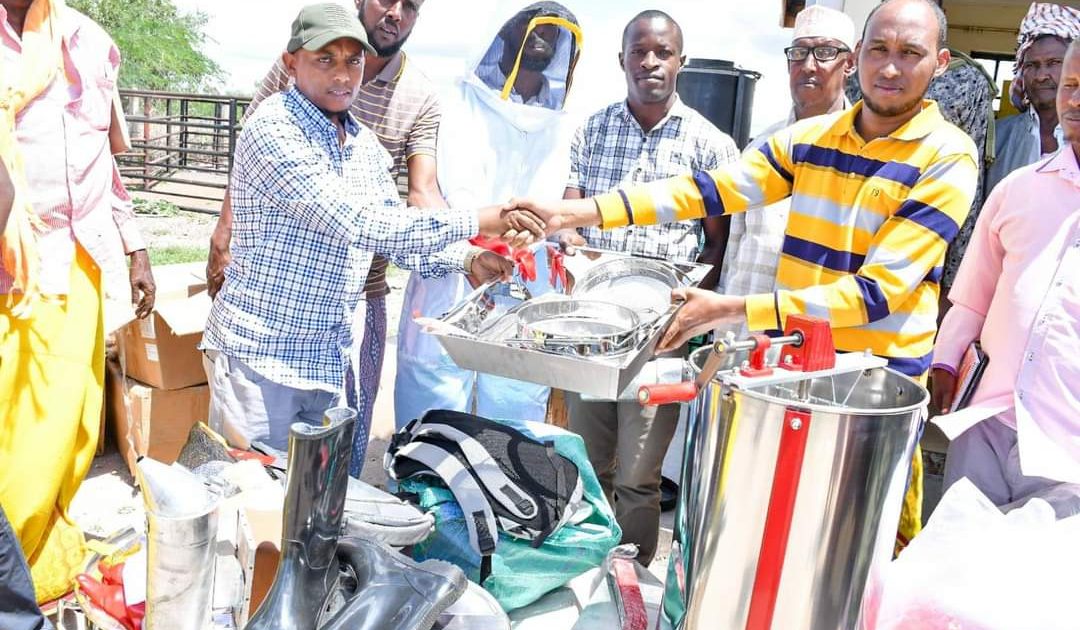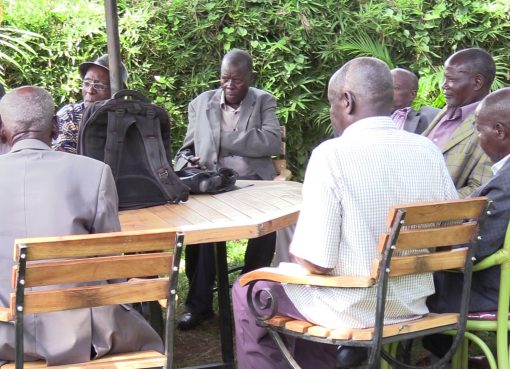The County Government of Garissa has enhanced plans to support at least 15,000 farmers with bee keeping and honey harvesting equipment to boost production within the next few months.
According to the Garissa County Director for Livestock Services Dr. Haret Hambe, the county has the potential of producing the best quality honey due to conducive vegetation cover along the river Tana and the thick stretch vegetation of Boni forest.
Hambe was speaking in Masalani, Ijara sub-county during the distribution of 90 beehives and honey harvesting tools donated by Livestock Marketing Systems (LMS) to Gumarey Honey Co-operative Society.
The 90-member society received a donation comprising of 90 Langstroth beehives, honey centrifuge, 100kg stainless steel honey tank, 13 frame honey extractors, 1 uncapping fork, 1 decapping fork and stainless-steel double sieve.
Other items were 25 beekeeping kit (25 bee suits, 25 smokers, 25 hive tools, 25 bee brushes, 25 pairs of gumboots, 25 torches, 25 knapsack bags, 1 settling tank and 30 super boxes with 9 frame comb starters.
The equipment was handed over by the LMS Business Development Specialist Officer Abdullahi Dahir to the Sacco Chairman Abdullahi Abdi, who received on behalf of the members.
Abdullahi said LMS will continue to partner with the county government in supporting the alternative livelihood programme to train and empower the pastoralists to diversify their economic activities.
“This is an alternative source of income to our livestock farmers who have been suffering after losing their animals to the now perennial drought,” Abdullahi said.
“With the frequency of drought cycles and the intensity of the drought, pastoralism could in the coming years be unsustainable. We want to encourage our pastoralists farmers to find alternative source of income to cushion them when they lose their animals to drought,” he added.
Dr. Haret appealed to youth and women to venture into beekeeping enterprise as it is a low-cost undertaking with high economic returns.
“We want to encourage our people to embrace beekeeping because it is one of the cheapest ways of farming. Once you set up a colony, you may be able to harvest it regularly without putting in a lot of work,” he said.
According to Dr. Haret, one hive can produce up to 25 kilograms of honey; three times per year which when processed is equivalent to 18 to 20 kilograms of liquid honey.
By Jacob Songok




